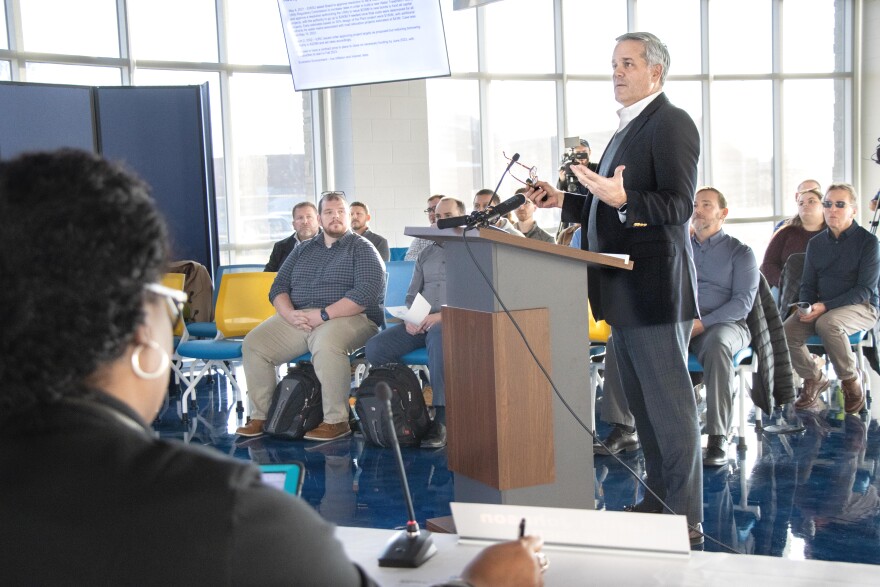
The Evansville Water and Sewer Utility has announced changes to the proposed plan to build a new water treatment plant.
The projected price of the build nearly doubled over the two years of planning.
The new plant was initially proposed as a $180 million dollar project — replacing the facility that in some places is 125 years old.
The EWSU ended up requesting $260 million for the project but were approved by the Indiana Utility Regulatory Commission (IURC) to borrow up to $225 million for the project in March of 2022.
This summer, the estimate for the project was around a shocking $350 million — likely to exceed $400 million. “That would just be unaffordable for our community,” said Lane Young, Utility Executive Director.
Because this system must be self-supporting, water rates were set to increase gradually based on borrowing $225 million.
Material and interest rate increases were a major part of that $400 million figure, Young said, but there were other issues also.
“What we learned over time is the estimate for the site work that was going to have to be done and the amount of buildings that we were building, at the very outset was, was grossly underestimated,” he said. “Our original proposal should have been much higher, even before inflation and everything else.”
This spring, The EWSU began working with another consulting firm, to retool the original plan.
The original brick buildings constructed in the 1880s currency housing administration and testing lab, were set to be repurposed for a public-private partnership, possibly for “boutique shops and restaurants, maybe some loft apartments,” Young said in April this year — before hearing the bad news.
The original plan was to construct all new buildings atop the former locations of the Levee Authority and City Garage, which would have also required extensive site work preparing the ground for the new buildings.

With new consultants, the current estimated cost with a new plant is $258 million dollars, ideally operating in 2027.
Instead of building all new structures and repurposing the original building for private use, the original building will continue to be used for administration and a testing lab, and the northernmost part of it will be razed.
The other buildings constructed in the prior century will also be razed, and a new facility will be built just across Waterworks Road. While there won’t be new amenities, there will be more greenspace because of this plan.
Young said while fewer new structures will be built, they’re still keeping the 50 million gallon per day capacity to meet the demands of growth.
He said the new plant will require a rate increase, and if the proposed plan holds steady, ratepayers will pay an additional $7.34 per month for a 5000 gallons of water use in 2026.
According to the EWSU, the original rate increase was $5.69. Of the new increase of $7.34, most of this, $5.69, is attributable to interest rate costs. The remaining $1.69 is the additional construction costs.
“So that's the impact,” Young said. “That final rate increase is going to be higher than we originally proposed back in 2021.”
Young suggested to the Utility Board that the EWSU increase its bill assistance program for eligible families.
He hopes to close on the funding at the end of this year to lock in interest rates and avoid additional project costs due to the Buy America Build America Act.
“If everything goes well, and we get approval on the timeline that I recommended, it's about a 30-month 24 to 30-month construction,” he said. “We would hope to kind of start breaking ground on … just some initial site work in even 2024, depending on when we close.”
Principle construction will begin early 2025 through 2026, possibly operational in 2027.
Support independent journalism today. You rely on WNIN to stay informed, and we depend on you to make our work possible. Give to grow our local reporting today. Donate

